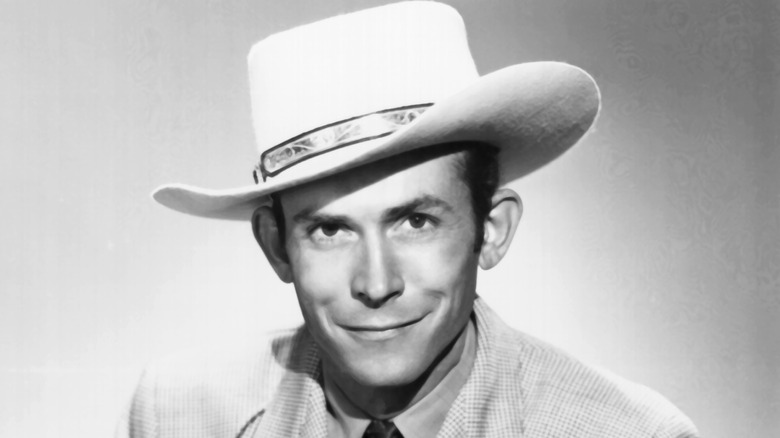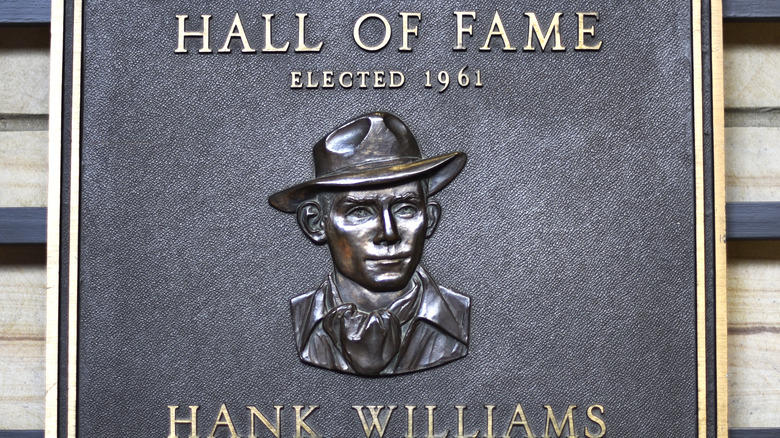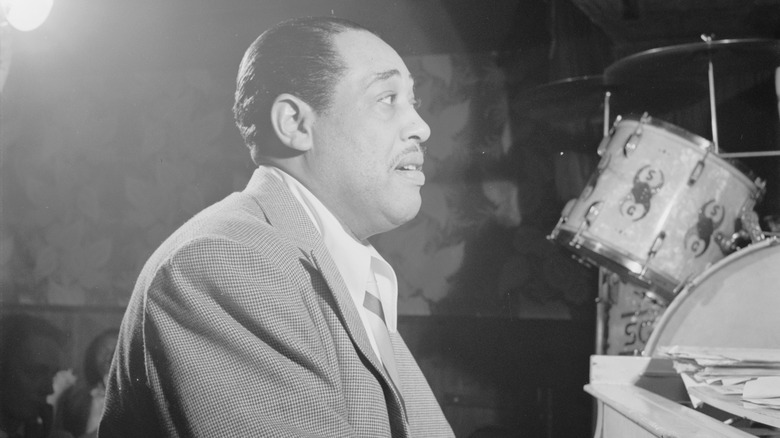How Hank Williams Won A Pulitzer Prize
Hank Williams was still churning out hits when he hired a college student to drive him to perform a concert in Canton, Ohio. His tune "Jambalaya" had topped the charts in 1952, but years of alcohol and prescription drug overuse finally took their toll on the singer-songwriter per Britannica and United Press. He had a heart attack and died in the back of the Cadillac in Tennessee sometime around January 1, 1953.
Nearly 60 years after his tragic death, the Pulitzer Prize Board honored Williams with a special citation in 2010 for "his craftsmanship as a songwriter who expressed universal feelings with poignant simplicity and played a pivotal role in transforming country music into a major musical and cultural force in American life" (via The Pulitzer Prizes). Though a handful of musicians had been honored with special citations prior to 2010, it was the first time the organization that awards its prestigious prizes in various fields like journalism and literature honored a country musician with a special citation, according to CNN. The Board based its decision on a "confidential survey of experts in popular music."
Changed the face of country music
In Hank Williams' short life — he died at 29 — he had a string of hits he penned and recorded in the early 1950s, including "I'm So Lonesome, I Could Cry," "Cold, Cold Heart," and "Hey, Good Lookin'," per This Day In Music. Beyond that, he synthesized various genres to create the template for country music. He also inspired the work of other musicians, some of whom, like Tony Bennett, covered his songs while he was still alive. Others, from Ray Charles to Beck, took inspiration from the Hillbilly Shakespeare as Williams was known, per Billboard and PBS.
This was one of the reasons the Pulitzer Prize Board chose to honor Williams. "The citation, above all, recognizes the lasting impact of Williams as a creative force that influenced a wide range of other musicians and performers," Sig Gissler, who was the administrator of the Pulitzer Prize in 2010, said in a press release.
Williams joined a select group
The Pulitzer Prizes, named after Joseph Pulitzer, the newspaper publisher and philanthropist, are administered by Columbia University and have been awarded since 1917, according to The Pulitzer Prizes. The Pulitzer Prize Board, which in 2010 included university professors and administrators and newspaper editors and publishers, has bestowed only a few special citations on musicians in popular genres. Among the other honorees were jazz greats Duke Ellington, Thelonius Monk, and John Coltrane; rock musician Bob Dylan; and soul singer Aretha Franklin, per the organization's list of past recipients.
The Board's inclusion of Williams was an attempt to "broaden the Music Prize and recognize the full range of musical excellence that might not have been considered in the past," according to the press release. As beloved as Williams was during his life, his stature has only grown in the decades since his passing. "I don't think any country artist cast a longer shadow than he does, both as a songwriter and a performer," music historian Jay Orr told Billboard in 2010. "His songs are master works. But there's a mystique about his character that still fascinates the people who have come after him. ... He was the romantic ideal of the hillbilly Shakespeare and his cultural legacy continues to grow."


